The country’s biggest clinical commissioning group will have to take immediate action to prioritise patient access to services in the face of unaffordable increases in demand, it has warned, plus the rest of today’s news and comment

5.15pm Monitor is to consider three trusts suitability for Foundation Trust status at its board meeting this week. These are Royal United Hospital Bath Trust, Derbyshire Community Health Services Trust and Bridgewater Community Healthcare Trust.
Chris Hopson, chief executive of the Foundation Trust Network said: “We are pleased and encouraged that the Monitor Board is considering authorising three NHS trusts for Foundation Trust status. The benefits of FT status for good governance, local decision making and accountability are clear.
These Trusts, like all those who apply for FT status, have worked incredibly hard to satisfy the tough authorisation criteria. There have been very few authorisations in the last two years due to the hiatus caused by the establishment of the CQC’s new inspection regime.
“It is a good signal to the NHS and provider sector that applications for authorisation are now being considered again and the benefits and disciplines of FT status can reach further across the NHS.”
4.15pm HSJ editor Alastair McLellan tweets: “‘Improving the NHS’ is now the nation’s number one priority - ahead of the economy and immigration.”
This is according to Lord Ashcroft’s latest poll.
2.55pm Campaign group Ovarian Cancer Action is calling for all women with ovarian cancer to have access to BRCA testing. A report by the group states there is a lack of equal provision of this testing across the UK.
A woman’s risk of developing breast and/or ovarian cancer is increased if she inherits a harmful mutation in the BRCA1 gene or the BRCA2 gene.
Katherine Taylor, acting CEO of Ovarian Cancer Action, said:”There is an urgent need for BRCA testing for women with ovarian cancer at point of diagnosis.This will inform the appropriate form of treatment and give women the choice to inform their families about their BRCA mutation which can help prevent future cancers or spot them earlier.
“Family members can choose whether to get tested, and if a BRCA1/2 gene mutation is detected, they can make decisions about what is best for them to manage their health in the future, whether by surveillance or risk reducing surgery.
“Today, women with ovarian cancer across the UK do not have equal access to BRCA testing and this is not right. Here at Ovarian Cancer Action, we are campaigning for that to change.”
A recent HSJ leader article challenged Healthwatch to punch its weight. Mr Nutt says his Healthwatch group aims tohelp change the culture and practice of engagement and involvement in the NHS and social care.
North Bristol Trust and South Gloucestershire Clinical Commissioning Group had submitted an operational resilience and capacity plan, envisaging the trust would achieve performance of 92 per cent against the A&E four hour standard by April.
The national target is for 95 per cent of patients to be admitted or treated and discharged within four hours.
12.35pm The country’s biggest clinical commissioning group will have to take immediate action to prioritise patient access to services in the face of unaffordable increases in demand, it has warned.
In a highly unusual move, chief officer of Northern, Eastern and Western Devon CCG Rebecca Harriott wrote to providers last week to warn services would “suffer” if the CCG did not take implement measures straight away.
She said confidence that the CCG could meet its financial plan for 2014-15 and end the year with a deficit of £14.6m had “gradually declined as the situation has become clearer”.
“In short, demand for services is outstripping what we can afford,” the letter said.
Priory Group chief executive Tom Riall told HSJ he had detected a shift in attitude in the NHS towards private providers, which could open the way for his firm’s ambitions to secure contracts for community services.
“For too long the debate has been about public versus private with public good and private bad,” he said.
“NHS providers are waking up to the fact that working together we can achieve an awful lot more.”
The Royal College of GPs and children’s charity the NSPCC have launched a “toolkit” of advice for doctors to help them identify issues, which also include female genital mutilation and forced marriage.
With doctors said to be on the “front line”, the RCGP said it was issuing the guidance, taking in advice from police, social workers, schools and government agencies, so they were better informed about what to do if they had concerns for a child.
10.43am Times columnist Matt Ridley questions whether the the world health organisation is “fit for purpose”.
“The delay of the United Nations’ key agency in raising the alarm about ebola appears to have stemmed at least partly fromt its obesession with other, policitically fashipnable and scientifically dubious prioirties, ” he argues
He criticises attempts by WHO to define e-cigarettes as tobacco products, “despite the lack of scientific evidence that they do harm and the growing evidence that they save lives”.
“Such bans would be convenient for pharmacutical companies, with which WHO has close links, whose sales of nicotene gum and patches have been in free fall because of e-cigarettes,” he argues.
“WHO is not wrong to fight tobacco but; but in fighting e-cigarettes it is protecting tobacco and doing real harm.”
By contrast, he writes that WHO’s “sluggish reponse to ebola has infuriated many health experts”.
10.20am In The Times, bickering among NHS managers could derail reforms crucial to the survival of the health service, the Healthcare Financial Management Association has warned.
The body, which represents NHS finance directors, said managers are too concerned about their own budgets to make necessary changes and look at their wider responsibility.
The warning comes as NHS bodies unveiled their five year forward view last week.
10.00am Thousands of dementia patients are hiding symptoms from loved ones and doctors because they are ashamed, The Daily Mail reports.
A report from the Medical Research Council says the “unacceptable stigma” is denying patients vital help and resulting in them being “marginalised” from the rest of society.
9.45am The Daily Mail reported yesterday that GPs are being paid around £100,000 a year to only work weekends.
The paper reports that doctors are sometimes working shifts which only involve answering the phone for the NHS 111 helpline for a couple of days a week.
The NHS Five Year Forward View last week set out system leaders’ vision for how the health service can meet public demand and remain affordable over the next five years.
On innovation and technology, the forward view said the reason investment has not always delivered the return it should is because care models and working cultures have not been ready.




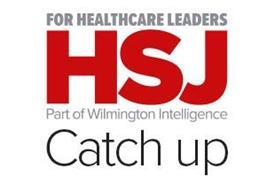


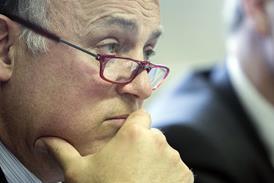
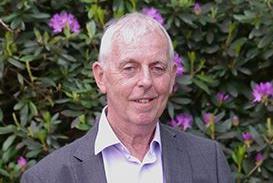
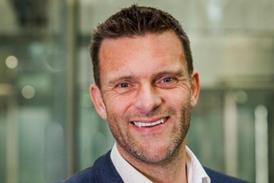

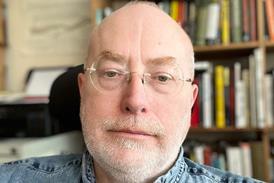











No comments yet